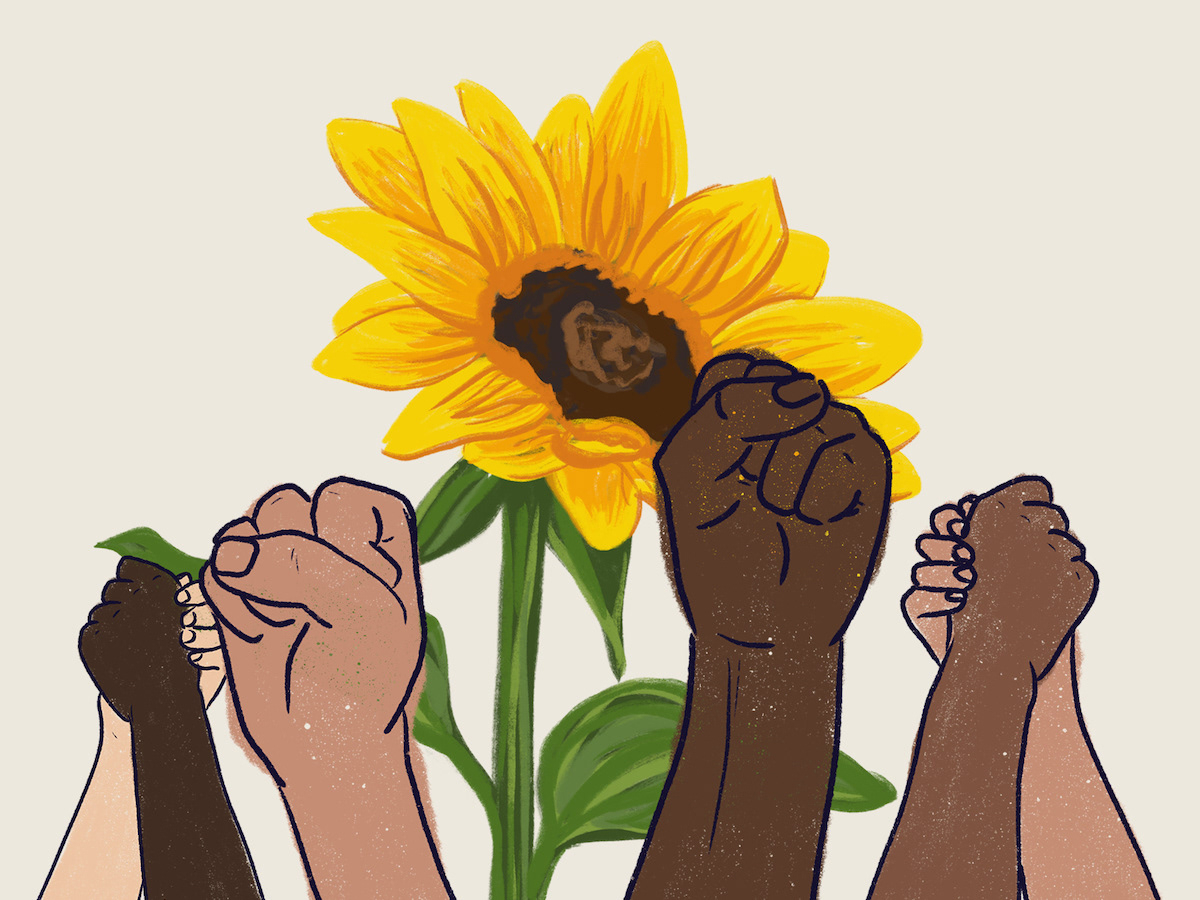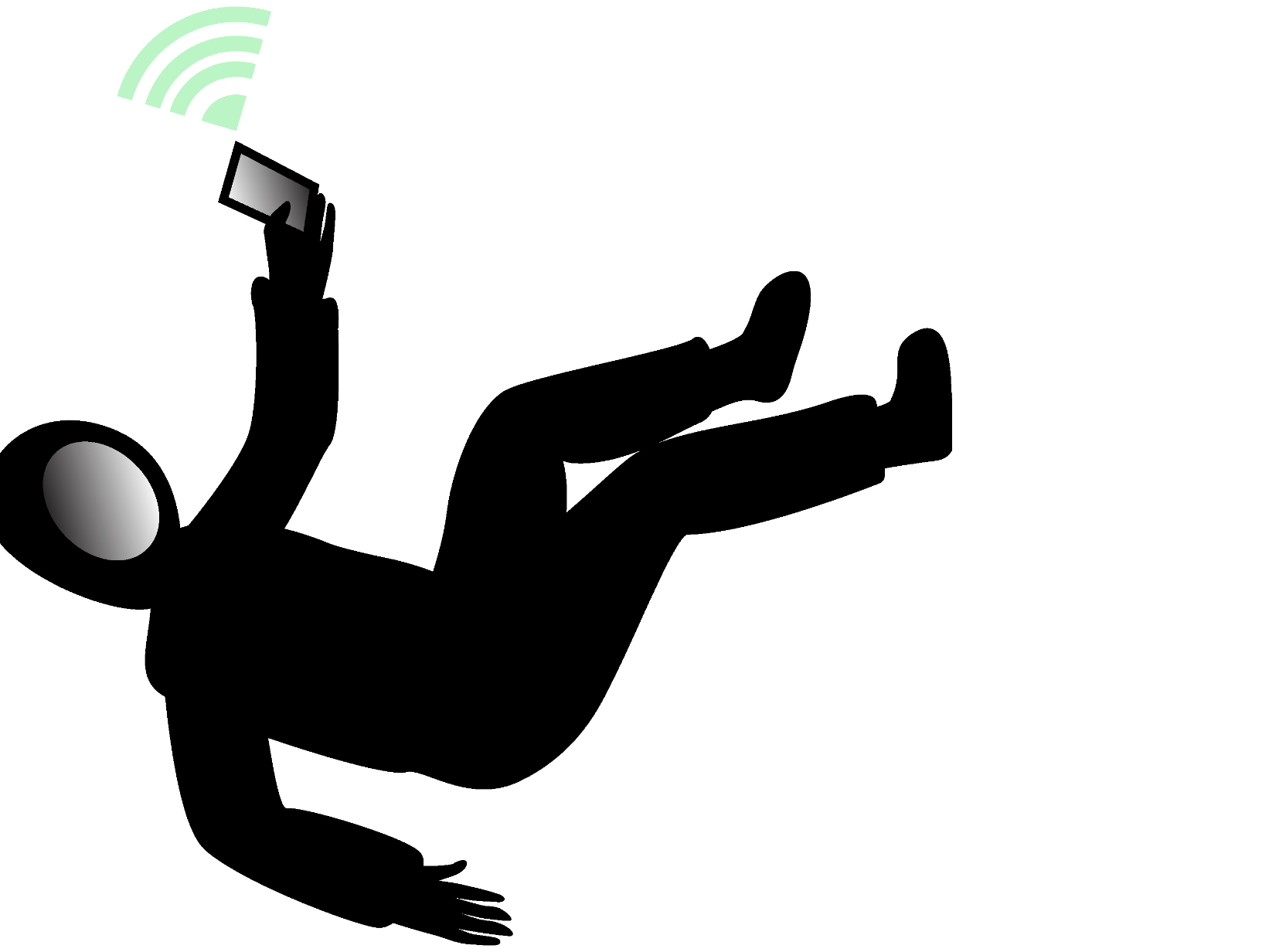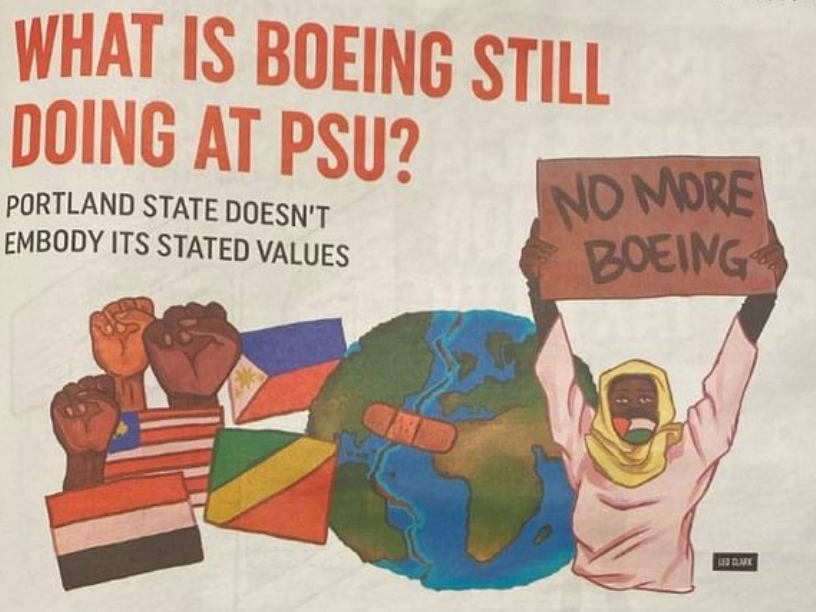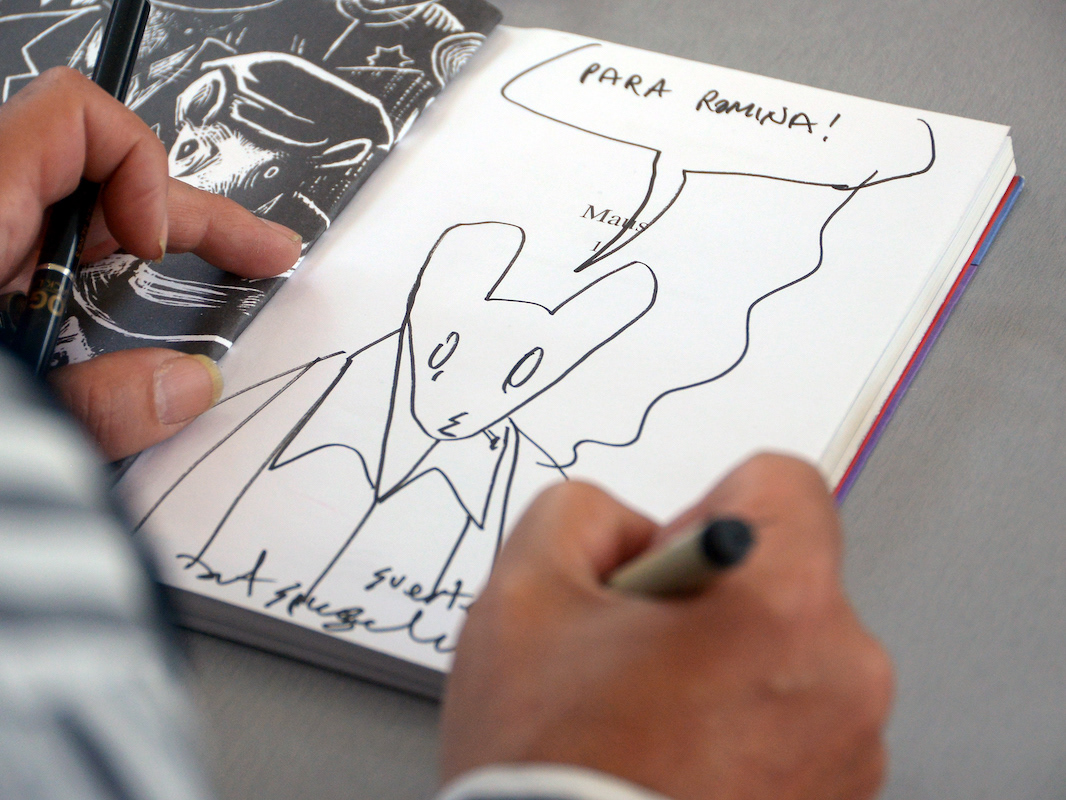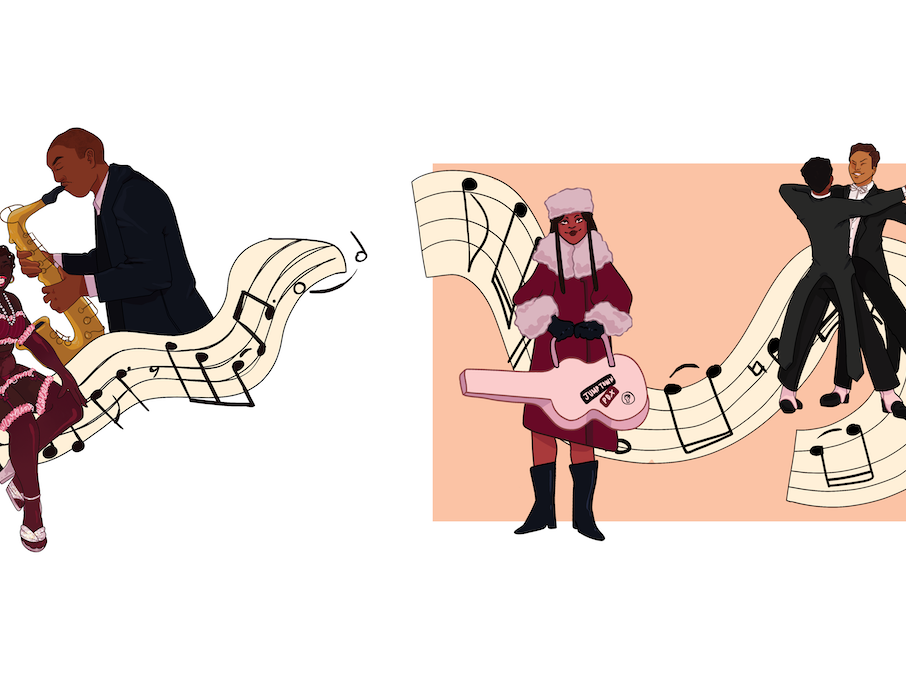The topic of equity and social justice in higher education hits close to home for Portland State students—one of the so-called victims of the social justice warriors, former PSU philosophy professor Peter Boghossian, time after time had faced controversial dust-ups. After over a decade of teaching at PSU, Boghossian officially resigned this September, calling the university a “social justice factory” and complaining that it failed to protect him from “continued harassment.”
The irony is a bit rich as he himself had encouraged his sympathizers to “document classes they believe perpetuate left-wing ideology by taking video of lectures and pictures of class materials and [to share] them online.”
“We have to sue to stop this ideology,” Boghossian said. But this sounds more like an offensive than a defensive gesture. Who was harassing whom?
But this isn’t just about poor old Boghossian. Likewise, it is also not merely about the other self-perceived aggrieved white elder statesmen of academia at his side in the culture war of wokeness such as Jordan Peterson and Steven Pinker, who bemoan the vilification of traditional masculinity and the post-modern deconstruction of the gender binary. Rather, this is a rebuttal to their sweeping claim that, according to Pano Kanelos, “higher education might be the most fractured institution of all.”
A recent post to Bari Weiss’ Substack Common Sense, “We Can’t Wait for Universities to Fix Themselves. So We’re Starting a New One,” announced the creation of a new university which writer Pano Kanelos described as “dedicated to the fearless pursuit of truth.” The new University of Austin was then christened in the eponymous Texas capital.
Kanelos was the former president of St. John’s College in Annapolis, Maryland, and University of Austin’s fledgling enterprise counts the following self-described brave professors among their faculty: Niall Ferguson, Bari Weiss, Joe Lonsdale, Arthur Brooks, Dorian Abbot, Peter Boghossian, Robert Zimmer, Larry Summers, John Nunes, Gordon Gee, and Steven Pinker to name a few.
There is no doubt that this is a capable, intellectual and influential cadre. Among them are journalists, scientists and former university presidents. That fact makes the mantle of their self-victimhood all the more unfortunate.
Kanelos’ article begins with preponderances of failed promises of prestigious universities such as Yale, Harvard and Stanford by artfully referencing their Latin and German-based mottos—Lux et Veritas: light and truth, Veritas: truth and Die Luft der Freiheit weht: the wind of freedom blows. The Eurocentric nature of these mottos is, of course, lost on Kanelos and precisely at the heart of the raging debates that he and his colleagues are reacting to.
The idea thatthe sanctimonious institutions of the West are under assault is the crux of their message. That this hegemony of supposedly objective and neutral Western values should continue to exist is implicit. These poor ostracized intellectuals are just defending freedom of speech and freedom of inquiry, after all, they are the self-anointed conservators of academic culture and tradition.
Kanelos cites the Center for the Study of Partisanship and Ideology (CSPI) several times as the main backbone for his claims, with their statistics and studies on the bias that right-leaning academics purportedly face.
According to Influence Watch, an organization that describes itself as a watchdog group with “more fact-based, accurate descriptions of all of the various influencers of public policy issues,” the CSPI are a center-right think tank that essentially studies and reports on bias against conservatives. In particular, the CSPI fancies itself as an offensive/defensive line against what it terms as the Great Awokening, a term popularized by left-progressive journalist Matt Yglesias to label the “strong leftward shift among American liberals on social issues, especially regarding gender, race, and sexuality.”
In his article, Kanelos bemoans that conservative academics face disciplinary actions, discrimination and harrassment. These individuals feel targeted as thought criminals for questioning what they feel are the dominant narratives of contemporary academic discourse.
If this sounds awfully similar to the currently roiling partisan culture war around so-called Critical Race Theory, it absolutely is. Wealthy and powerful white men have held the keys to the castle, and, quite literally, the pen and pocketbook of publishing and curriculum for the duration of the existence of universities.
White men promulgated eugenics in the U.S.—and also distorted and downplayed the ongoing genocide perpetrated by settler-colonialism and white supremacy in the United States and even honored the settlers who slaughtered indigenous women and children to “clear the land.” There are a myriad of examples that could carry forward here, but the overarching point is that there has been a reckoning across many institutions in the United States, and academia is at the forefront of that reckoning.
In 2018, a study found that only 3% of all full-time faculty in degree-granting, postsecondary institutions were Black. Here at Portland State University, only 3.5% of the faculty are Black, while 86.8% of the faculty is white. With this in mind, the grievances these professors have aired about having their freedom of speech and thought infringed upon should be laughable.
Dorian Abbot, a professor disinvited from a prestigious public lecture at the Massachusetts Institute of Technology decried that MIT chose to succumb to “the mob” and bring politics into an apolitical subject like geophysical science, in response to his views on affirmative action. Abbot lamented with all of the now-familiar cries of foul play such as “cancellation” and invocations of freedom of speech.
What he and many others on his side of this debate fail to comprehend is that no one is limiting their freedom to speak their minds. The U.S. government has not assailed their homes in the middle of the night to drag them before secret police to lock them and their incendiary ideas in a cage. This and much worse actually did happen to dissidents on the left in the U.S.—especially Black ones—and it continues to happen. But these men are noticeably silent on that front.
Rather, these men are facing the consequences of that free speech. Universities are responsible for the ideas and individuals they promote, just as all institutions are. I will be the first to agree with Kanelos that a profit motive corrupts and often ruins the prime directive of the institutions of higher education: to foster intellectual rigor, growth and excellence—a fact evident in that these institutions must fight to avoid financial failure in the midst of ever-increasing tuition rates, cost-of-living, inflation, the COVID-19 pandemic bringing a decline in enrollment and public funding budget cuts of incredibly serious consequence.
However, avenues of funding aside, platforming people or ideas that disparage people of color, trans or non-binary people or any other marginalized group, should have consequences on the reputation and career of the individuals and institutions who chose to do so.
Arguing that affirmative action treats people as groups rather than individuals sounds fine in theory—until we admit that, throughout the entire history of the United States, Black, Indigenous, people of color (BIPOC) as well as women and gender non-conforming people, have been, and still are, othered and treated as a monolithic group.
All of the systems in this country have continuously denied opportunity, access, agency and even the designation of humanity to these individuals by grouping them together on the basis of their identity. Regardless of where one stands on reparations, it is not a very far stretch to demand that institutions do their utmost to expand access and opportunity to individuals who are part of groups that have been and continue to be discriminated against.
The ramifications of white supremacy are alive and all around us today, so it is pretty rich for any white man to argue that everyone is now on equal footing, and should now be evaluated based upon their merit.
Dr. Phoebe A. Cohen, a geosciences professor at Williams College protested, arguing that universities should not invite speakers who disagree with fundamental values such as diversity and affirmative action.
“This idea of intellectual debate and rigor as the pinnacle of intellectualism comes from a world in which white men dominated,” Cohen said.
So, is an institution uninviting a speaker based upon their political speech censorship?
According to the American Civil Liberties Union (ACLU), censorship is “the suppression of words, images, or ideas that are ‘offensive,’” and “happens whenever some people succeed in imposing their personal, political or moral values on others.”
The ACLU notes that censorship by the government is unconstitutional—although they have done it anyway—and that private individuals and groups can organize boycotts that are protected as their own free speech under the First Amendment. So, whose free speech are we to prioritize in this case?
If we are to defer to tradition and emulate the past, the loudest and most important voices would be those of powerful white men, of course!
Which is why Kanelos laments that “so much is broken in America”—though he does not say which America, as there are two continents and many countries that bear this signifier—and why he goes even further to decry the endemic fear of this formerly-free society.
Again, free for whom? Was this society broken when it kidnapped and enslaved Black Africans? How about when it pushed Indigenous people to the brink of extinction to steal all of their land? Or was the vaulted institution of higher learning that they so cherish broken when it was only accessible to white men for the majority of its existence? How about the segregation of Jim Crow, or the redlining and gentrification of cities that universities often financially directly benefited from?
Was the endemic fear of persecution—and worse—that has been visited upon BIPOC communities a time when society was perfectly functioning and not broken? This all seems to me like the Make America Great Again slogan, but repackaged in the guise of defending free speech, intellectual rigor and academic democracy.
Kanelos offered that someday in the future “historians will study how we arrived at this tragic pass” in the hopes that universities will again be “bastions of open inquiry and civil discourse.” This is ironic, considering that it is the historians of today who are unveiling the hegemony of white supremacy and creating the very conditions that Kanelos is reacting to.
Feeling this burden of persecution, he and his aforementioned colleagues are hoping to build their university in a way that will be “insulated from the quotidian struggle to make ends meet”—as privileged and tone-deaf of a concept as I have ever heard. He boasts that “the university as we know it today is an institution that originated in 11th-century Europe” without the slightest hint of self-awareness about why non-Europeans and their accomplices would want to challenge the foundations of such an elitist and culturally-biased institution.
Kanelos closed his post with soaring appeals to “the intrepid pursuit of truth” that has supposedly been the driving force of education since the ancient Greek philosopher Plato, circa 387 BCE. He quotes Frederick Douglass: “Education…means emancipation. It means light and liberty. It means the uplifting of the soul of man into the glorious light of truth, the light only by which men can be free.” But in doing so, undermines much of his own argument, as the missing context of Douglass’ own life was that he was a fugitive and formerly enslaved person who built his colossal intellectualism all on his own, as Black people were prohibited from attaining any education, let alone college, throughout much of his lifetime.
Even Kanelos’ argument that there exists a fundamentally objective truth for every subject or topic—and that the pursuit of this truth should be the aim of higher education—is predicated on a homogenous assimilationist view of humanity and culture. That point of view is akin to the Western Chauvinism of the reactionary white supremacist organization known as the Proud Boys who violently oppose multiculturalism and equity.
Kanelos and his cohort would likely criticize this point of view as postmodernist vaguery and unfair conflation, but their absolutist ideals and traditional power structures have been—and continue to be—eroded by the forces of equity and inclusion. Though they try to obscure it, this weakening of their grip on the narrative and power of these institutions has inspired their reactionary turn towards self-victimization.
Momentum is not letting up on the so-called Great Awokening, but disparage it as they may, history often comes to remember rigid traditionalists who entrench themselves in unfair and often brutal structures unfavorably.
Dialogues are flourishing, exploring the many biases that have pervaded our thought both within academia, and without. May these dialogues multiply and flower endlessly, opening the way for access, transparency and the multitude of human iterative beauties—and ensuring that reactionaries like Kanelos and Boghossian are merely the sad footnotes of an embarrassing chapter of history.
Illustration by Anastasia Pargett



